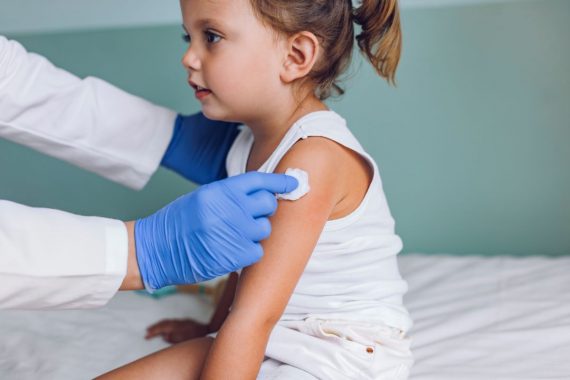GP practices will not be able to exclude any eligible patients when reporting against the new childhood vaccinations and immunisations QOF indicators that comes in from next month.
It comes as NHS England has revealed further details on the new vaccinations and immunisations services that become part of the core contract from April.
In a recent BMA contract webinar, GP Committee chair Dr Richard Vautrey explained exception reporting will not apply to the new indicators because ‘the childhood immunisations have never been covered by exception reporting’.
However he added that despite this, the ‘significant majority of practices should gain from the new arrangements’ moving immunisations into QOF as they will be able to access item of service (IOS) fees of £10.06 per vaccination.
As part of the 2021/22 contract agreement between the BMA and NHS England, announced in January, four new indicators covering vaccinations and immunisations will be added to QOF, replacing the childhood immunisation DES.
At the time, the BMA said this would transfer ‘almost £60m’ from the DES to QOF and that this would increase the total value of QOF but not ‘generate new workload’.
QOF achievement targets for vaccinations are now ‘very similar to WHO targets for immunisations’ and a ‘sliding scale’ will reward practices with higher uptake, Dr Vautrey added in the contract webinar.
GPs will be expected to restart all QOF activity from next month, as QOF payments will not be protected beyond the end of March.
Meanwhile, under the new separate core contractual standards for vaccinations and immunisations, NHS England has said practices should:
- Provide a ‘named lead’ for their vaccination service. This does not have to be a clinician, although this is ‘likely to be preferred’ for ‘many practices’ as if not, the lead ‘must work alongside and be support by a clinician’,
- Make sure ‘sufficient convenient’ appointments are available for 100% of their eligible population – including during evenings and weekends – and bookable online ‘as these services develop’. (Practices can collaborate across their PCN to achieve coverage as long as appointments are ‘acceptable and convenient’ to their patients.)
- Recall patients a minimum of two times but should continue ‘beyond three contacts until vaccination has been completed’ in ‘most cases’. The third contact should be made by a healthcare professional either face-to-face or by phone.
The letter also outlined similar requirements for national catch-up campaigns, which will be funded through the global sum, as well as standards for record-keeping and reporting.
Note: This article was updated at 10.55 on 17 March to clarify that it only refers to the new childhood immunisation indicators rather than the whole immunisations domain.
Pulse July survey
Take our July 2025 survey to potentially win £1.000 worth of tokens













Someone has a serious “named lead” fetish in NHSE. From the nameless, dossier producing, irrelevant box ticking ivory tower.
GMC have made vaccination compulsory for Doctors and their staff; now they want us to ensure nobody escapes without vaccination: easy – if they unreasonably refuse, and threaten your qof income, there has been a complete breakdown of Dr-Pt relationship, amd they shuold be told to go and register at the GMC-practice in London : they are being made unwelcome at all other GP practices.
The sooner the public learn how this corrupt government is manipulating healthcare for privatisation, the better.